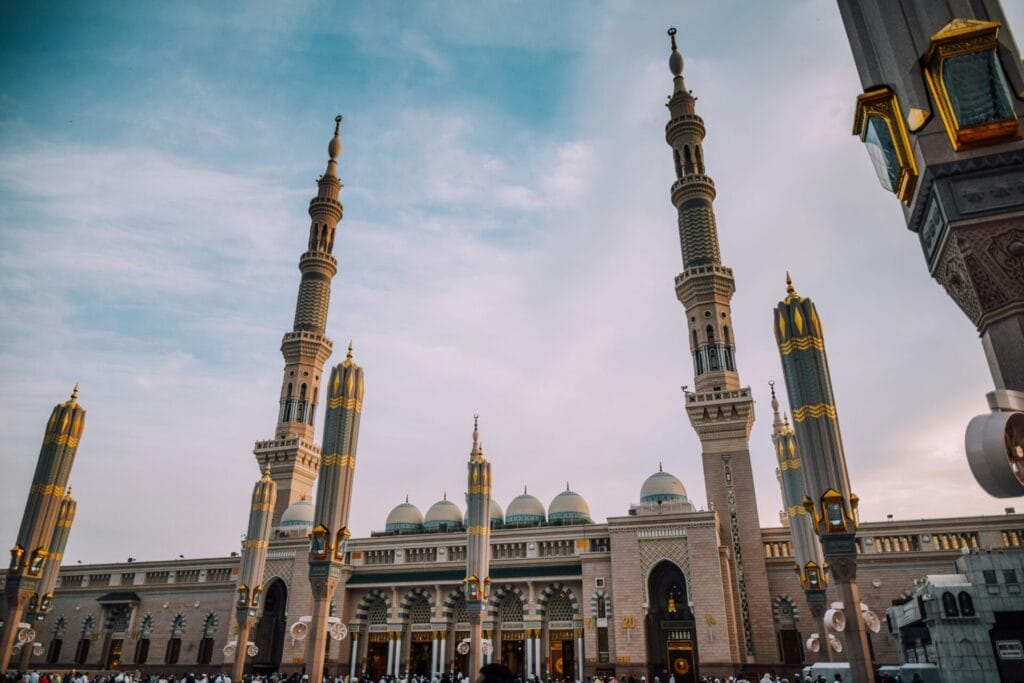Umrah, also known as the lesser pilgrimage, is a sacred journey undertaken by millions of Muslims each year to the holy city of Mecca in Saudi Arabia. Unlike the Hajj, which is a mandatory pilgrimage for all able-bodied Muslims at least once in their lifetime, Umrah is a non-mandatory pilgrimage that can be performed at any time of the year. Despite being non-mandatory, Umrah holds great significance in the hearts of Muslims around the world, and the economic impact of this pilgrimage cannot be understated.
The economic impact of Umrah is significant not only for Saudi Arabia but also for the global economy. The influx of pilgrims from all over the world brings with it a surge in economic activity, from transportation and accommodation to retail and hospitality. This impact has only grown in recent years, as advancements in transportation and communication have made it easier for Muslims from all corners of the globe to undertake this spiritual journey. The economic impact of Umrah extends beyond just the pilgrimage itself, as it has a ripple effect on various sectors of the economy, creating job opportunities, boosting infrastructure development, and increasing tourism and hospitality industry.
Revenue Generated from Umrah Pilgrims
The revenue generated from Umrah pilgrims is a significant contributor to the economy of Saudi Arabia. According to the Saudi Arabian Monetary Authority, the revenue from Umrah pilgrims has been steadily increasing over the years, reaching billions of dollars annually. This revenue comes from various sources, including visa fees, accommodation, transportation, and retail spending. The Saudi government has also implemented measures to streamline the process for Umrah pilgrims, such as introducing e-visas and expanding the capacity of the Grand Mosque in Mecca to accommodate more pilgrims. These measures have not only made it easier for pilgrims to undertake their journey but have also contributed to the increase in revenue generated from Umrah.
The revenue generated from Umrah pilgrims also has a positive impact on the global economy. As pilgrims travel from their home countries to Saudi Arabia, they contribute to the revenue of airlines, travel agencies, and other businesses involved in the travel industry. Additionally, the retail and hospitality sectors in Mecca and Medina benefit greatly from the influx of pilgrims, as they spend on accommodations, food, and souvenirs during their stay. This revenue not only supports local businesses but also contributes to the overall economic growth of the region.
Job Opportunities and Employment Boost
The influx of Umrah pilgrims creates a surge in job opportunities and employment in various sectors of the economy. The hospitality industry, in particular, sees a significant boost in employment as hotels, restaurants, and other businesses catering to pilgrims need to hire additional staff to meet the increased demand. This surge in employment is not limited to the hospitality industry, as other sectors such as transportation, retail, and construction also see an increase in job opportunities during the Umrah season.
The employment boost from Umrah pilgrims is not only temporary but also has long-term benefits for the local workforce. As businesses expand to meet the demands of pilgrims, they often hire local residents to fill these positions, providing them with stable employment and income. Additionally, the skills and experience gained from working in these sectors can have a lasting impact on the employability of local residents, contributing to their long-term economic well-being.
Infrastructure Development and Investment
The influx of Umrah pilgrims has led to significant infrastructure development and investment in Saudi Arabia. The Saudi government has made substantial investments in expanding and improving the infrastructure in Mecca and Medina to accommodate the growing number of pilgrims. This includes expanding the capacity of the Grand Mosque in Mecca, building new hotels and accommodations, and improving transportation networks to facilitate the movement of pilgrims.
The infrastructure development and investment in Saudi Arabia have not only improved the experience for Umrah pilgrims but have also had a positive impact on the local economy. The construction and development projects create job opportunities for local residents and stimulate economic activity in the region. Additionally, the improved infrastructure attracts further investment from both domestic and international businesses looking to capitalize on the growing number of pilgrims visiting Saudi Arabia.
Increase in Tourism and Hospitality Industry
The increase in Umrah pilgrims has led to a significant boost in the tourism and hospitality industry in Saudi Arabia. The demand for accommodations, dining, transportation, and other services has created opportunities for businesses in these sectors to expand and thrive. This increase in demand has also led to a rise in investment in the tourism and hospitality industry, with new hotels, restaurants, and other businesses opening to cater to the needs of pilgrims.
The increase in tourism and hospitality industry not only benefits businesses but also contributes to the overall economic growth of Saudi Arabia. The revenue generated from these sectors supports job creation, infrastructure development, and investment in other areas of the economy. Additionally, the growth of the tourism and hospitality industry has a positive impact on the image of Saudi Arabia as a tourist destination, attracting visitors from around the world beyond just Umrah pilgrims.
Impact on Local Businesses and Retail
The influx of Umrah pilgrims has a significant impact on local businesses and retail in Mecca and Medina. The surge in demand for goods and services during the Umrah season creates opportunities for local businesses to expand their operations and increase their revenue. Retailers see an increase in sales as pilgrims purchase souvenirs, gifts, and other items during their visit to Mecca and Medina. Additionally, restaurants and food vendors benefit from the increased demand for dining options during this time.
The impact on local businesses and retail extends beyond just the Umrah season, as many businesses see a lasting increase in revenue due to their association with the pilgrimage. The exposure to a global audience of pilgrims also provides local businesses with an opportunity to market their products and services to a wider customer base. This exposure can lead to long-term growth for these businesses as they establish themselves as trusted providers for pilgrims visiting Mecca and Medina.
Long-term Economic Benefits and Sustainability
The economic impact of Umrah extends beyond just the immediate revenue generated during the pilgrimage season. The investments made in infrastructure development, tourism, hospitality, and other sectors have long-term economic benefits for Saudi Arabia. The improved infrastructure not only enhances the experience for Umrah pilgrims but also supports further economic growth by attracting visitors beyond just the pilgrimage season.
The long-term economic benefits of Umrah also contribute to the sustainability of the local economy. The investments made in infrastructure development create lasting job opportunities for local residents and support ongoing economic activity in Mecca and Medina. Additionally, the growth of the tourism and hospitality industry provides a stable source of revenue for businesses in these sectors, contributing to their long-term sustainability.
In conclusion, Umrah holds great significance for Muslims around the world and has a significant economic impact on Saudi Arabia and beyond. The revenue generated from Umrah pilgrims supports various sectors of the economy, creating job opportunities, boosting infrastructure development, increasing tourism and hospitality industry, and supporting local businesses. The long-term economic benefits of Umrah contribute to the sustainability of the local economy and support ongoing economic growth in Saudi Arabia. As advancements in transportation and communication continue to make it easier for Muslims to undertake this spiritual journey, it is likely that the economic impact of Umrah will only continue to grow in the years to come.

